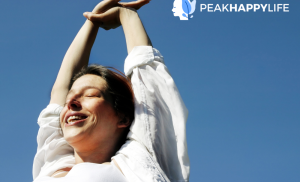Boost Your Self-Esteem: 60% Success Rate Through Physical Activity
Are you tired of feeling low on self-esteem and lacking confidence? Well, we have great news for you! Engaging in physical activity has been shown to boost self-esteem with an impressive success rate of 60%. It may sound surprising, but studies have consistently revealed the positive impact of exercise on our mental well-being. In this article, we will explore how incorporating physical activity into your routine can transform your self-image and empower you to reach your full potential. So get ready to lace up those sneakers and discover the incredible benefits of an active lifestyle!
Benefits of Physical Activity
Improved Physical Health
Engaging in regular physical activity offers numerous benefits for your overall physical health. Regular exercise helps to strengthen your muscles and bones, increase your cardiovascular fitness, and improve your overall physical endurance. It can also help to reduce the risk of developing chronic conditions such as heart disease, high blood pressure, and obesity. By engaging in physical activity, you are giving your body the opportunity to stay fit, healthy, and strong.
Enhanced Mental Health
Physical activity not only benefits your physical health but also plays a crucial role in enhancing your mental well-being. Regular exercise has been shown to release endorphins, which are natural chemicals in the brain that boost your mood and reduce feelings of stress and anxiety. Engaging in physical activity can also help to alleviate symptoms of depression and improve your overall mental resilience. It provides a positive outlet for stress and helps to improve your overall mental clarity and focus.
Increased Energy Levels
Feeling tired and lacking energy can significantly impact your daily life and overall well-being. Physical activity has been proven to increase your energy levels and combat feelings of fatigue. Engaging in regular exercise improves your circulation and oxygen flow to your muscles and tissues, providing them with the necessary nutrients and energy to function optimally. By incorporating physical activity into your daily routine, you will experience increased energy levels, allowing you to be more productive, focused, and engaged throughout the day.
Self-Esteem and Its Importance
Understanding Self-Esteem
Self-esteem refers to how you perceive and value yourself. It is the belief in your self-worth and abilities, as well as the confidence you have in your own capabilities. Having healthy self-esteem is crucial for your overall well-being and life satisfaction. When you possess a positive self-image and high self-esteem, you are more likely to take on challenges, have healthier relationships, and strive towards achieving your goals.
Factors Influencing Self-Esteem
Various factors influence your self-esteem, including your upbringing, experiences, achievements, and social interactions. Negative experiences, criticism, and self-doubt can significantly impact your self-esteem, while positive experiences, support, and encouragement can help to boost it. It is important to recognize that self-esteem is a dynamic and ever-changing aspect of your life, influenced by both internal and external factors.
The Link Between Physical Activity and Self-Esteem
Scientific Research
Numerous studies have explored the relationship between physical activity and self-esteem, consistently demonstrating a positive correlation between the two. Engaging in regular physical activity has been shown to improve self-esteem levels in individuals of all ages and backgrounds. These studies have found that individuals who participate in physical activity experience higher levels of self-confidence, improved body image, and increased feelings of self-worth.
Impact of Physical Activity on Self-Esteem
Physical activity has a profound impact on self-esteem by promoting a positive self-image and enhancing feelings of accomplishment. When you engage in physical activity, it allows you to set goals, overcome challenges, and experience improvements in your physical abilities. As you achieve these milestones, your self-esteem receives a boost as you recognize and appreciate your capabilities. Additionally, physical activity can help to improve body image by increasing feelings of self-acceptance and promoting a positive relationship with your body.
Choosing the Right Physical Activity
Identifying Personal Interests
To make physical activity enjoyable and sustainable, it is important to choose activities that align with your interests and preferences. Consider activities that you find enjoyable and exciting, such as swimming, dancing, hiking, or playing a sport. By selecting activities that you genuinely enjoy, you are more likely to remain motivated and committed to engaging in regular physical activity.
Considering Physical Abilities
When choosing a physical activity, it is crucial to consider your physical abilities and limitations. Not all activities are suitable for everyone, and it is important to select an activity that aligns with your current fitness level and any specific health considerations. If you have any concerns or limitations, it is advisable to consult with a healthcare professional or a certified fitness instructor who can guide you in choosing a safe and appropriate activity.
Seeking Professional Guidance
If you are unsure about which physical activity is best for you or if you are just starting out on your fitness journey, seeking professional guidance can be beneficial. Certified fitness instructors or personal trainers can provide personalized advice and guidance tailored to your individual needs and goals. They can help you design a safe and effective exercise routine, teach you proper techniques, and ensure that you are engaging in activities that are suitable for your fitness level.
Setting Realistic Goals
Defining Self-Esteem Goals
When it comes to boosting your self-esteem through physical activity, it is important to set realistic and achievable goals. Start by defining what you hope to achieve through your physical activity, whether it is improving your overall fitness, losing weight, gaining strength, or simply feeling more confident in your own skin. Set specific goals that are meaningful to you and align with your personal aspirations.
SMART Goal-Setting
To increase the likelihood of achieving your self-esteem goals, it can be helpful to utilize the SMART goal-setting framework. SMART stands for Specific, Measurable, Achievable, Relevant, and Time-bound. By following this framework, you can create goals that are specific and well-defined, measurable to track your progress, achievable within your capabilities, relevant to your self-esteem aspirations, and time-bound to provide a sense of urgency and motivation.
Finding Motivation
Intrinsic Motivation
Intrinsic motivation refers to the internal drive and enjoyment that comes from engaging in an activity for its own sake. When it comes to physical activity, finding intrinsic motivation involves identifying the activities that bring you joy, satisfaction, and a sense of accomplishment. By focusing on the inherent rewards of the activity itself, such as the enjoyment of movement or the sense of personal growth, you can cultivate a long-term and sustainable motivation for engaging in physical activity.
Extrinsic Motivation
Extrinsic motivation refers to external factors that provide motivation and encouragement to engage in physical activity. Examples of extrinsic motivation include rewards, recognition, or the desire to please others. While extrinsic motivation can be helpful in initiating and maintaining physical activity, it is important to also cultivate intrinsic motivation for long-term success. A healthy balance between intrinsic and extrinsic motivation can provide the necessary drive to stay committed to regular physical activity.
Creating an Exercise Routine
Establishing a Schedule
To ensure consistency and make physical activity a regular part of your routine, it is important to establish a schedule. Determine the days and times that work best for you to engage in physical activity and make them non-negotiable commitments. By treating exercise as an important appointment with yourself, you are more likely to prioritize it and make it a consistent habit.
Selecting Appropriate Exercises
When creating your exercise routine, it is essential to select exercises that align with your goals and preferences. Incorporate a combination of cardiovascular exercises, strength training, and flexibility exercises to ensure a well-rounded routine. Consider activities such as jogging, cycling, weightlifting, yoga, or Pilates. By selecting a variety of exercises, you can keep your routine exciting and target different areas of your fitness.
Progressive Overload
To continue challenging your body and improving your physical capabilities, it is important to incorporate progressive overload into your exercise routine. Progressive overload involves gradually increasing the intensity, duration, or frequency of your workouts. By progressively challenging your body, you can continue to see improvements in your strength, endurance, and overall fitness level, which in turn can positively impact your self-esteem and confidence.
Combining Physical Activity with Social Interaction
Group Exercise Classes
Engaging in physical activity with others can provide additional benefits beyond the physical and mental advantages. Group exercise classes, such as dance classes or fitness boot camps, offer the opportunity to engage in physical activity while also socializing and connecting with others who share similar interests. Working out in a group setting can provide a sense of community, support, and motivation, enhancing your overall enjoyment and adherence to a regular exercise routine.
Sports Teams
Participating in organized sports teams can be a great way to combine physical activity with social interaction. Whether it’s joining a local soccer league, basketball team, or volleyball club, being part of a team allows you to engage in friendly competition, develop teamwork skills, and forge new friendships. The camaraderie and support from teammates can provide a sense of belonging and contribute to a positive self-esteem.
Outdoor Activities with Friends
In addition to organized group activities, engaging in outdoor activities with friends can also be a fun and social way to incorporate physical activity into your routine. Whether it’s going for a hike, playing a game of frisbee, or simply taking a walk together, spending time outdoors and being active with friends can provide a refreshing change of scenery and boost your mood. The combination of physical activity and social interaction can significantly enhance your overall well-being and self-esteem.
Maintaining Consistency and Overcoming Barriers
Developing a Support System
Maintaining consistency in your physical activity routine can be challenging, especially when faced with barriers or obstacles. Developing a support system can greatly enhance your ability to stay motivated and committed to regular exercise. Share your goals and aspirations with family and friends who can provide encouragement, accountability, and support. Consider finding an exercise buddy who can join you in your workouts and help keep you motivated on days when you may feel less inspired.
Managing Time Effectively
One common barrier to engaging in physical activity is a lack of time. However, with effective time management, it is possible to prioritize physical activity and make it a regular part of your schedule. Identify time slots throughout the week that can be dedicated to exercise, even if they are shorter durations. Look for opportunities to incorporate physical activity into your daily routine, such as taking the stairs instead of the elevator or going for a walk during your lunch break. By managing your time effectively, you can overcome the obstacle of a busy schedule and make physical activity a priority.
Celebrating Achievements
Rewarding Yourself
As you progress on your self-esteem journey through physical activity, it is important to celebrate your achievements along the way. Set small milestones or goals that can be celebrated with rewards. Treat yourself to something you enjoy, such as a spa day, a new book, or a favorite meal. By acknowledging and rewarding your accomplishments, you reinforce positive behavior and provide yourself with the motivation to keep pushing forward.
Recognizing Progress
In addition to rewarding yourself, it is important to recognize and celebrate the progress you have made throughout your self-esteem journey. Take the time to reflect on how far you have come and acknowledge the improvements you have experienced, both physically and mentally. Recognize the positive changes in your confidence, self-image, and overall well-being. Celebrating progress helps to reinforce a positive mindset and provides you with the motivation to continue striving towards your self-esteem goals.
In conclusion, physical activity offers numerous benefits for both physical health and self-esteem. Engaging in regular exercise improves physical health, enhances mental well-being, and increases energy levels. By understanding self-esteem and recognizing its importance, you can appreciate the link between physical activity and self-esteem. Choosing the right physical activity, setting realistic goals, finding motivation, creating an exercise routine, combining physical activity with social interaction, maintaining consistency, and celebrating achievements are all essential components in boosting self-esteem through physical activity. So, lace up your sneakers, find an activity you love, and embark on a journey to enhance your self-esteem through the power of physical activity!
















